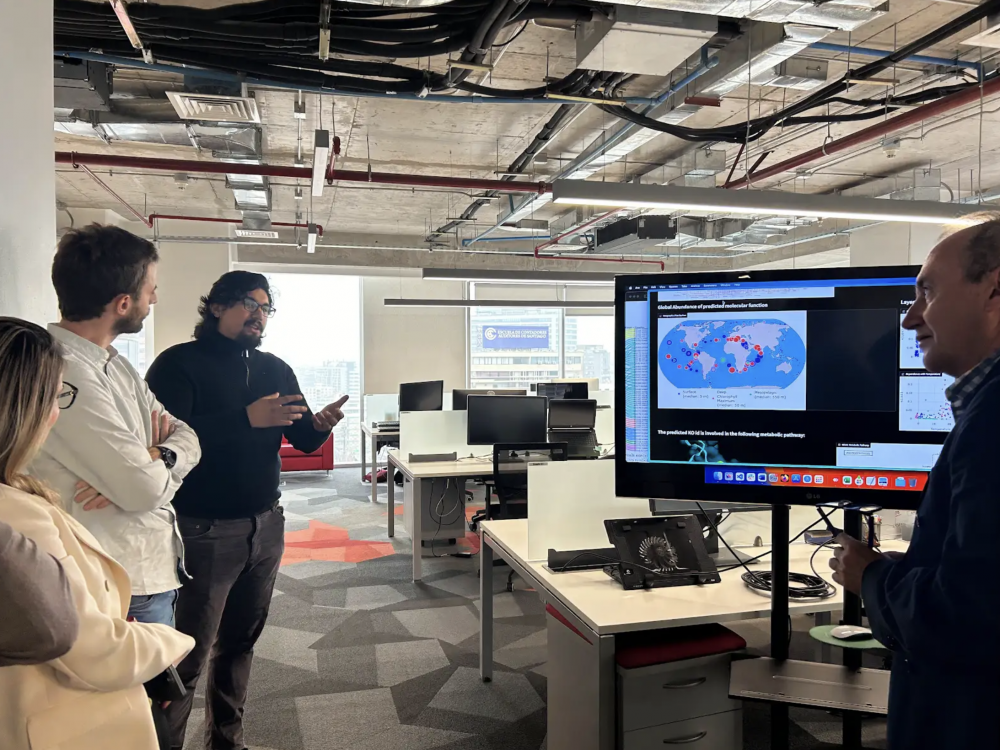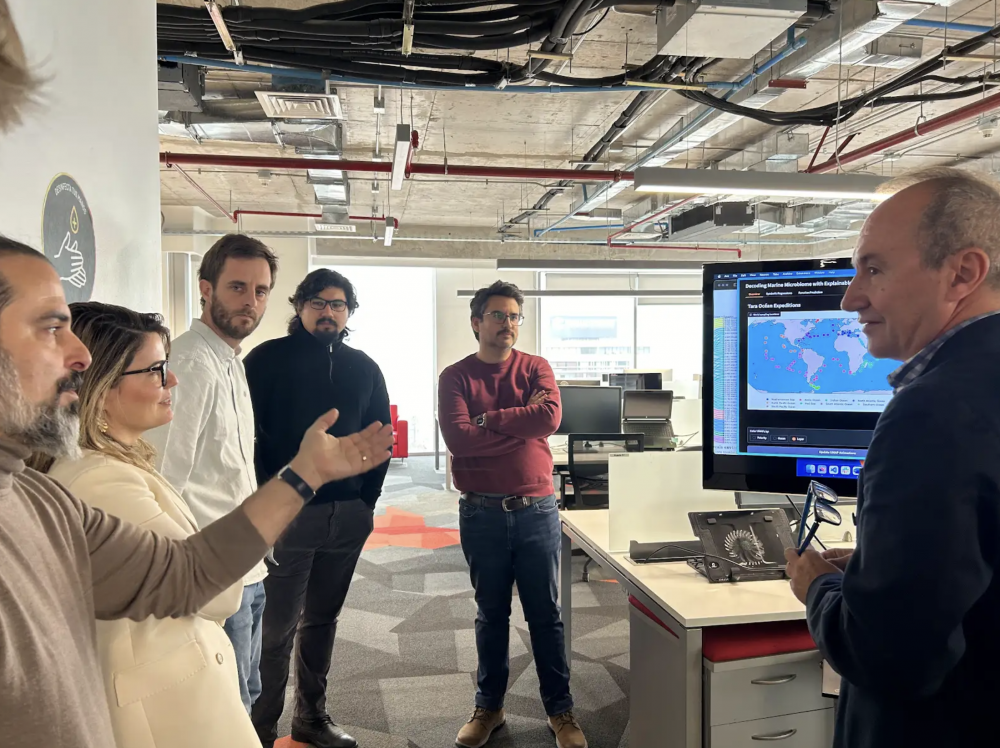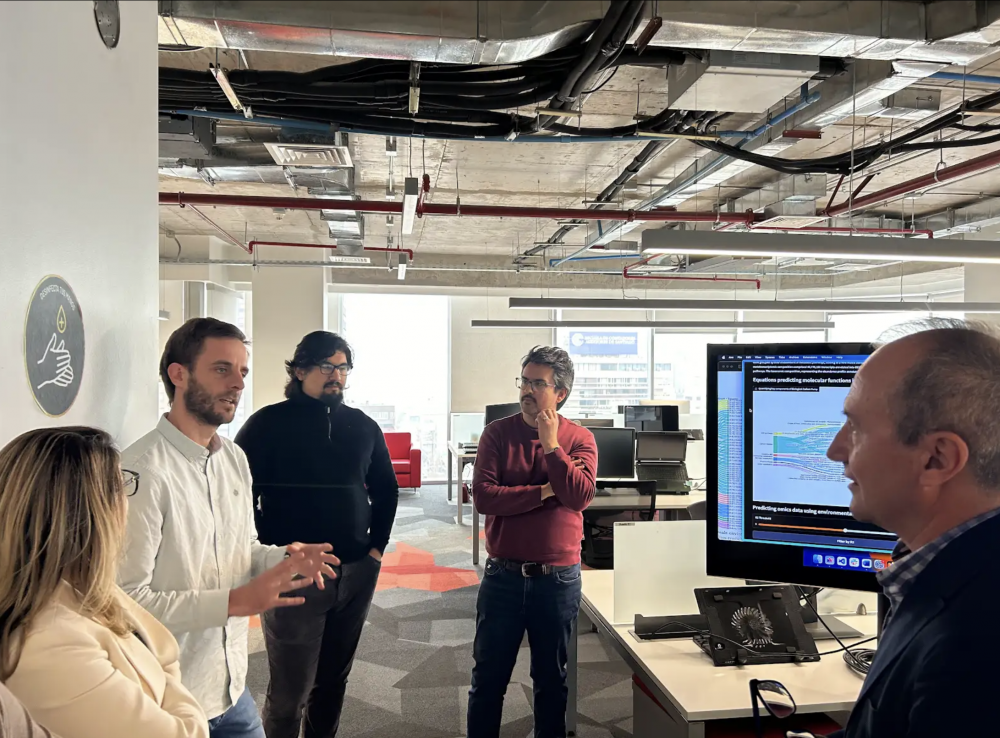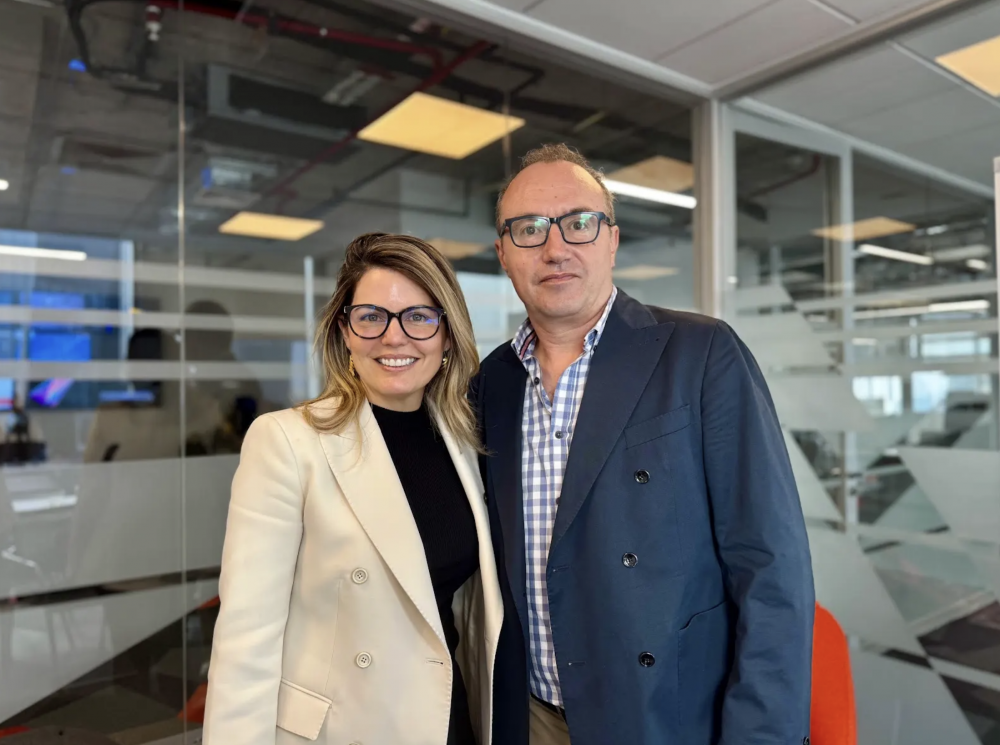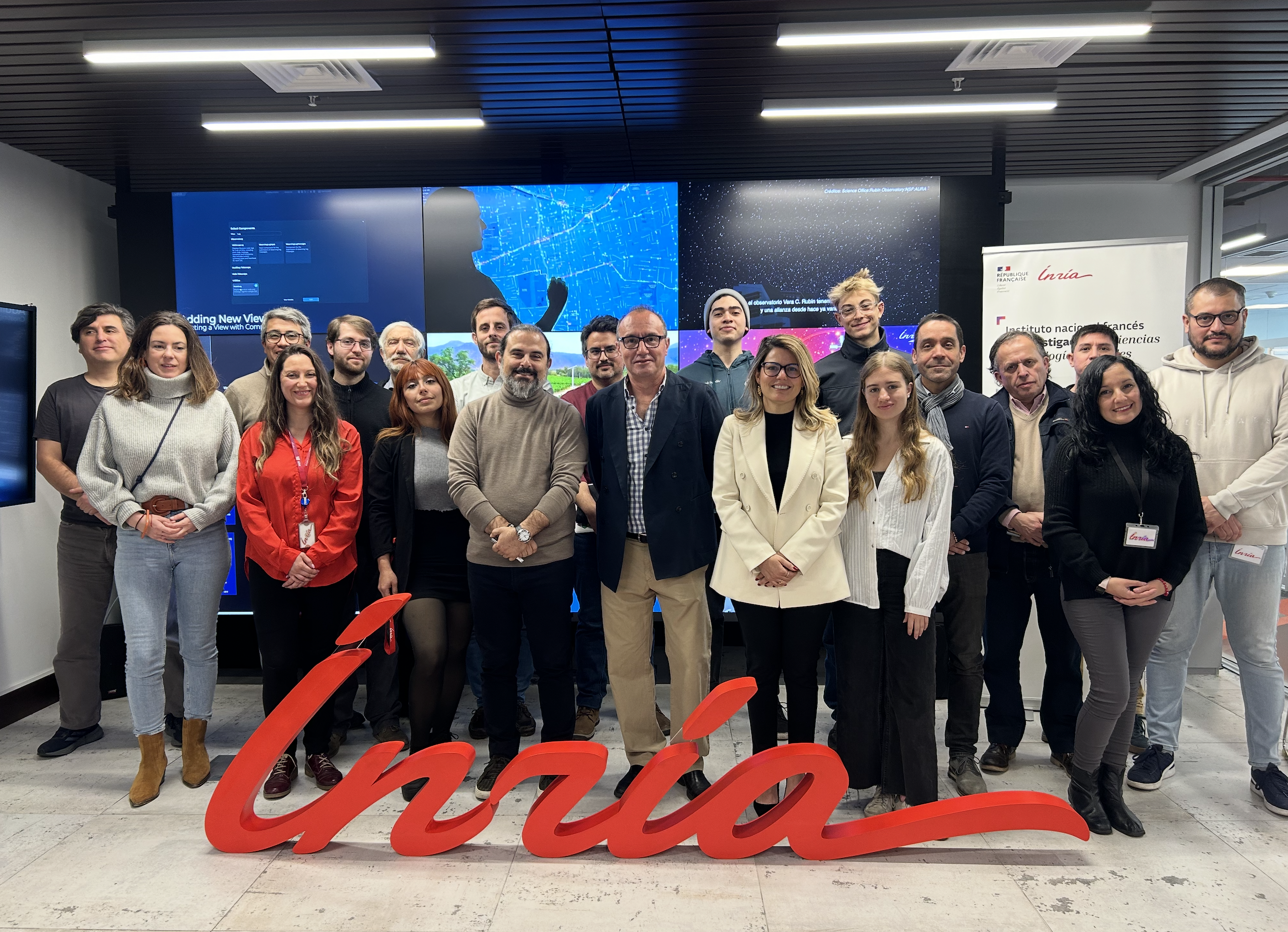
On July 15th, Inria Chile received the visit of José Manuel Molina, Professor and Director of the Applied Artificial Intelligence Group at Universidad Carlos III de Madrid. During a full day, the Doctor of Telecommunication Engineering from Universidad Politécnica de Madrid presented his research and learned in detail about the various projects being developed at Inria Chile.
As part of the Inria Chile Talks (a cycle of scientific talks open to the public and organized at Inria Chile, focused on presenting cutting-edge topics in digital sciences and particularly in artificial intelligence), José Manuel Molina presented his talk "Instance Segmentation: New Technologies, Metrics, and Applications for Computer Vision." He delved into instance segmentation, an advanced computer vision technique that focuses on identifying and classifying each object individually in an image at the pixel level. Unlike semantic segmentation, this method assigns unique labels to each object, allowing differentiation between different instances, even if they are of the same class.
"In the presentation, I addressed the current advances in image processing using deep learning and transformers. I explained how these techniques are applied to concrete challenges and the problems that arise when developing projects in the real world. We achieved a significant advance that solves a problem considered extremely difficult: being able to define the exact silhouette of an object within an image, a process known as segmentation or 'creating a mask.' Before, technology could detect the general location of an object and say, 'it is here.' Now, we are able to delineate its precise contour and say, 'this is it.' This leap from 'it is here' to 'this is it' represents a much deeper level of visual understanding by the system," explained Molina.
After his presentation, a tour of the Inria Chile offices was conducted, where Molina had the opportunity to meet part of the team of researchers who are currently part of Inria Chile and learn about some of the projects they are developing. Among the initiatives, the advances of OcéanIA were presented, a pioneering project that, through artificial intelligence tools and mathematical modeling, contributes to the understanding of the structure, functioning, underlying mechanisms, and dynamics of the oceans, as well as their role in the regulation and maintenance of the biosphere and in the fight against climate change. The team also presented the Vendimia 5.0 project, within which Inria Chile develops predictive solutions based on explainable artificial intelligence that improve human-machine planning through the optimization of the various decision-making processes involved in determining the quantity and quality of grapes, the timing of their harvest, and the planning of the necessary oenological operations for wine production, which is especially relevant in a climate change scenario.
"I have had the opportunity to see some of the projects, and I found them very interesting. What caught my attention the most is the great breadth of each one, especially OcéanIA. It is admirable how a single project can address so many disciplines, from biology to machine learning. Precisely, the richness created by bringing together researchers from different backgrounds towards a common goal is what I found most notable," said the researcher.
Global knowledge to address Local and Regional challenges
José Manuel's visit also paved the way to address the challenges of the Franco-Chilean Binational Center on Artificial Intelligence. The Center will not only connect the artificial intelligence ecosystems of France and Chile but also extend that connection throughout the region, creating a bridge between Europe and Latin America.
In this regard, Molina commented that "nowadays, knowledge is undoubtedly global. Although the pace of development varies across different parts of the world, this globalization provides us with a unique opportunity. The key lies in connecting regions, such as Europe and Latin America, in this case, so they can share their challenges and the solutions they are developing. It is very difficult today for institutions, institutes, or centers to have a perspective across different continents, as they tend to be local, focusing their efforts on the problems of their own country. Therefore, the creation of a center that, from its inception, has a foundation supported on two continents is a very important advancement."
For her part, the Director of Inria Chile and the Franco-Chilean Binational Center on Artificial Intelligence, Nayat Sánchez-Pi, explained that
Verbatim
In a world with increasingly complex challenges, transcontinental collaboration is essential. Inria Chile is a vital bridge between France and Chile and also between Europe and Latin America. The recent visit by Professor José Manuel Molina from the Carlos III University of Madrid reinforces our commitment in this regard. His talk, focused on video segmentation and computer vision, directly intersects with several of our research lines, applying to two key areas of the Franco-Chilean Binational Center on Artificial Intelligence: AI for Science and AI and Innovation. Operating a binational center from Inria Chile gives us an unparalleled global perspective to identify common challenges and develop solutions that benefit a much broader community. At Inria Chile, we believe that this deep connection between continents is the key to a truly transformative impact in the field of artificial intelligence.

